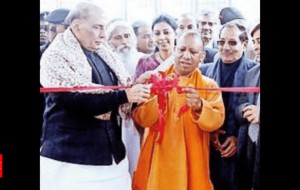Discrimination against Scheduled Castes and Scheduled Tribes
Discrimination against Scheduled Castes and Scheduled Tribes

On Independence Day, Ms. Amritham, the Panchayat president of Aathupakkam panchayat was not allowed to hoist the national flag because she belongs to the Dalit community. Today, after intervention from the Tiruvallur district collector and the Superintendent of Police, she finally hoisted the national flag at the panchayat office.
Social activists say that such discrimination is common across Tamil Nadu, and have demanded a monitoring mechanism in every district to address such issues. How does the law protect members of a Scheduled Caste (SC) or Scheduled Tribe (ST)?
Protection under the law
Indian law has abolished untouchability, and Article 17 of our Constitution disallows the practice of untouchability in any form.
Further, we have a specific law to deal with offences against SCs and STs. This is the Scheduled Castes and the Scheduled Tribes (Prevention of Atrocities) Act, 1989. The Act prevents offences or atrocities against SC/ST members, and also provides special courts for the trial of such offences. It aims to offer relief and rehabilitation for SC/ST victims.
Section 3 of the Act punishes offences against members of an SC or ST. Some of the major offences are listed below:
a) You cannot forcibly commit any act on an SC/ST member, like removing his clothes, forcibly shaving his hair, painting his body or any other similar act which is against human dignity.
b) You are not allowed to wrongfully drive out an SC/ST member from his land, or interfere with his rights, including forest rights, rights over water or irrigation facilities etc.
c) You cannot make an SC/ST member do manual scavenging, or employ him for such a purpose.
d) You are not allowed to insult or intimidate a member of an SC/ST in any public place with the intention of humiliating him. Further, you cannot abuse him by referring to his caste in any public place.
e) You are not allowed to promote feelings of enmity, hatred or ill-will against members of Scheduled Castes or Scheduled Tribes.
If you commit any of these offences, you can be punished with a fine and imprisonment for at least six months, which may extend to five years.














Comments
0 comment